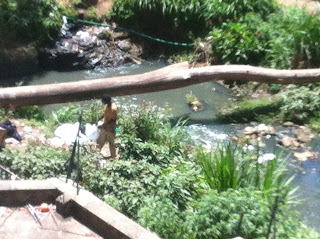To add salt on the wound, wizards are now rebranding into pastors: is this a probability or a fact? Although I believe in miracles, the manner in which some miracles are being performed leave behind much to be desired. There is a lot of corruption and extortion in the name of the Lord within our churches today, which is spreading fast like an infectious disease. In Kenya, we have millions of churches some of them with funny names more than you can imagine. Opening a church is like starting up a gold mine company. Church is a fast growing business: to some extent, if taxed, the country will move an extra mile.
The rate of poverty and unemployment has made people vulnerable to fake pastors. Everyday, people are going to different churches in search of miracles but the pastors are taking advantage of the situation. I ask: where are we heading to? Has this become a man eat man society? Is this what they call survival for the fittest? What does the future hold for the weak or the less fortunate? This is not only affecting development but also it is affecting religion in terms of values. This explains to me why we have an increasing number of Atheists. How do churches expect society to have a positive change when all they do is steal from people? I will give you a story: once upon a time there was a hummingbird which lived in the forest with so many other animals. One day the forest was burning and the Hummingbird was trying the best she could to stop the fire from spreading. However, the hummingbird had a small beak that could not carry enough water to put off the fire. Instead of the elephant helping, he was laughing asking the hummingbird if he thought his beak was big enough to carry enough water to stop the fire but the Hummingbird responded ''stop laughing because you have a big trump but there is nothing you are doing to put off the fire. I know I have a small beak but am doing the best I can''. As a blogger, I know am not as big as I think to change things in Africa but I have opted to be a Hummingbird and do the best I can to change our continent. We need religion, for sure, but then again we must have some limits. God did not create fools neither does he expect us to turn into fools. I don't believe people have to go into churches to have a good relationship with their maker. We have so many people going to church every saturday and sunday but they have done nothing good to be proud of. A church is not a hiding place for sinners but a place to worship. As I said earlier, environment has four elements and religion lies under one of the element which is social environment. I challenge religious leaders to promote values that are positive to development. Religious leaders: please be a good example and people will appreciate the importance of religion.


















